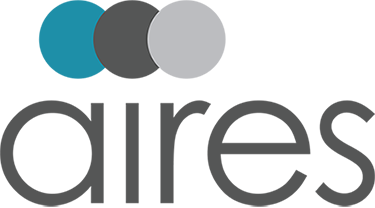With pandemic concerns declining due to ongoing health and safety measures, many of us are optimistic for a “return to normal” in the coming months. For many in the workforce, this includes a return to office. However, indications show that the work-from-home culture has taken hold and, for many, will continue on a full- or part-time basis.
The findings of Aires’ March 2021 Pulse Survey demonstrated that 61% of respondents stated “too soon to tell” or “not sure” when asked if employees will return to the office in 2021. Additionally, 29% of respondents stated that employees currently working remotely may never return to the office, while 64% of respondents do expect at least half of their remote workforce to eventually return to the office.
It’s clear that many employees want flexibility regarding when and where they work, and many expect employers to allow that flexibility. Some also want to work from home permanently (and from any location), depending on work roles and responsibilities. Because of this, there are many employees who have opted to personally move their families to a different location that better suits their lifestyle and/or family needs (unfortunately, sometimes unbeknownst to the employer). This can cause further complications with work-from-home compliance.
Many HR and Mobility managers have been tasked with the development of policies and programs to address the need for guidelines and compliance for employees choosing to work from home. Compliance from a tax and payroll perspective for work from home is of the utmost importance, and much more nuanced than simply moving to a new location.
In April, Aires held an independent peer focus group with 15 multinational corporations to discuss their company’s stance and what, if anything, their organization had been working on to address the “new normal” of work from home. Some findings include:
- HR/Mobility Managers are offering guidelines rather than policies
- If offices are currently open, work-from-home approval is most often at the discretion of the manager
- While offices are closed, many companies have taken their established work-from-home policies and have applied them across their population for the time-being
- Most companies offer support for the initial home office setup (e.g., computer, monitors, printer, etc.) but little other support is provided on an ongoing basis
For those that have approval to move to a new location as personal preference:
- No companies indicated providing tax or financial support for employees who voluntarily elect to move to another location
- No companies indicated that an adjustment in salary is made for an employee moving to another state – regardless of whether it is a higher or lower cost of living area
THE IMPORTANCE OF LOCATION-BASED COMPLIANCE
Work from home assessment and tracking/compliance is as important today as business travel tracking has been for years. Now, both are a hot topic for the traveling employee and the employer. Tools traditionally used for business travel tracking are now finding their way into the market to ensure control, compliance, and accountability once more. At Aires, we recognized this and provided a solution to our clients to help mitigate the compliance risks of travel. Our tool, called TravelTraX, notifies travelers and organizations (as well as their vendors) of any risks that travel may present in the areas of payroll, tax, immigration, and duty of care/safety.
Having this solution in place has been a great benefit since compliance risks have been elevated due to work-from-home and work-from-anywhere situations. Fortunately, TravelTraX provides the same exact assessment and tracking/reporting capabilities to remote workers as it does for travelers. These employees are currently treated the same from a compliance standpoint, so we have started to refer to this practice as “location-based compliance.” It is important to note that we have seen location-based compliance responsibilities falling on mobility departments more than ever before. We are consulting with clients on best practices and industry expectations for the best course of action, while offering a complete technology tool that can be utilized as a standalone product or incorporated into Aires’ mobility platform.
LEARN MORE AT OUR UPCOMING WEBINAR
The complete results of our focus group and an introduction to TravelTraX will be showcased during an Aires webinar on June 29. Please contact your Aires representative for more information or follow this link to register. Our in-house tax, immigration, consulting, and business travel subject matter experts will lead the webinar and answer any questions. Aires will provide insight to assist in building your company’s guidelines and provide a demonstration of TravelTraX as a solution to accurately report and comply with government guidelines.


